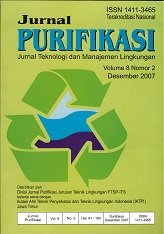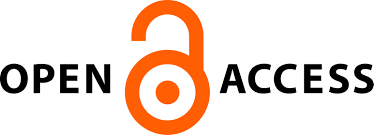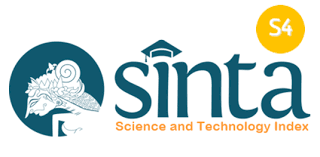ANALISIS ALIRAN SAMPAH PLASTIK SEBAGAI PENENTU KEBUTUHAN KAPASITAS INFRASTRUKTUR DAUR ULANG DI KOTA BANDUNG
Main Article Content
Abstract
The generation of plastic wastes in Bandung’s society is about 86300.37 kg/day. The reduced amount of it is only a few. The aim of this research is to determine the recycling infrastructure capacity in Bandung City. This research used interview and observation methods. Capture rate of plastic waste in Bandung is 41,55% from all plastic waste that generated by Bandung’s City, it means recycling activity of plastic waste has not yet reached its full potential because the sources don’t do separation. The capacity of infrastructures that are built for each location wilayah (Bandung Barat, Bandung Tengah and Bandung Timur), by making an assumption that it is 100% optimized, are 150,25 m3/day, 321,35 m3/day, and 141.49 m3/day. While by making assumptions, for 50% optimized and 60% optimized, the capacity of infrastructure in West Bandung and East Bandung are 0 m3/day and 0 m3/day, because the available infrastructure is enough. For Central Bandung are 14589,61 m3/day (50% optimized) and 24083,77 m3/day (60% optimized).
Downloads
Article Details
Submission of a manuscript to Jurnal Purifikasi means that the work has never been published in another journal and is not under consideration for publication elsewhere. The author hereby agrees to submit the copyright of the manuscript and its contents to Jurnal Purifikasi, if accepted for publication. Accepted manuscripts will be published in printed form where the ISSN is bound in printed form, not in online form (pdf). Authors are not allowed to publish their work in other forms (journals) without permission from the Jurnal Purifikasi manager.
By submitting a manuscript, the author is deemed to know all the rights and obligations attached to each manuscript.








